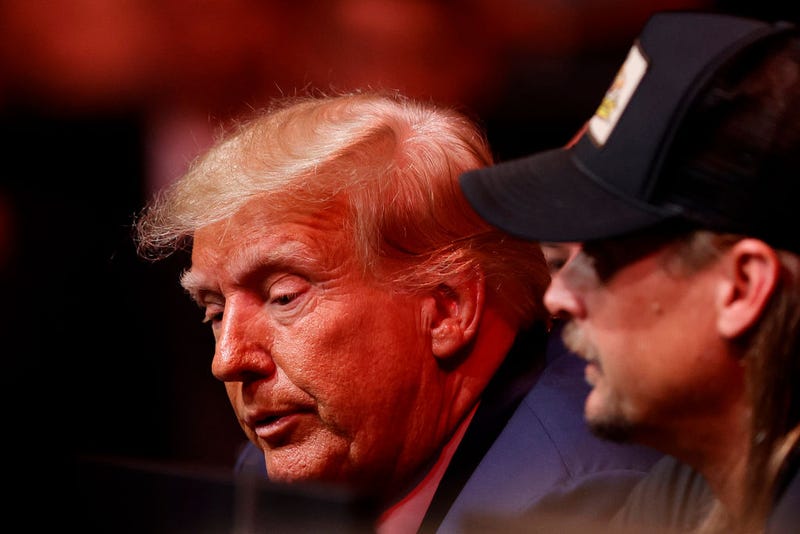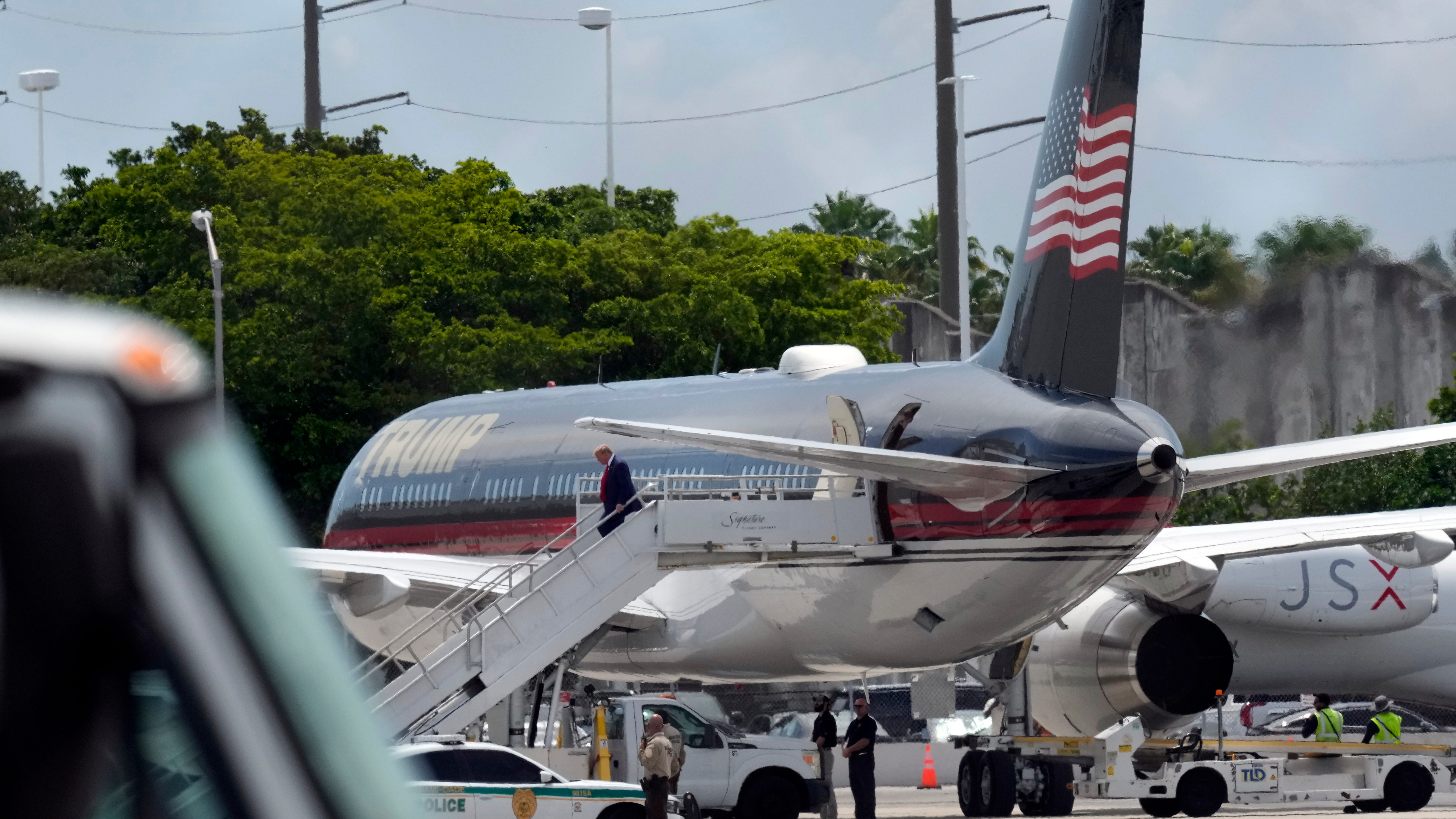
Donald Trump invoked what’s being called the “Sock Drawer Defense” during an exclusive interview on the Americano Media carried on Audacy's WAXY in Miami Monday night on the eve of his appearance in court over the alleged mishandling of classified documents after his exit from the Presidency.
The former President is set to appear in a Miami courtroom Tuesday to enter his official plea in the Department of Justice’s indictment.
During the interview, which you can listen to above in full, Trump called the federal indictments an attempt to distract voters from what he alleged was corruption in President Joe Biden’s administration.
He also once again declared he did nothing illegal in hoarding classified documents from his four-year Presidency, citing a case litigated 11 years ago involving another former President.
“Bill Clinton won a case many years ago. They call it the ‘Socks Case,’ because I guess they took things out in their socks. And the judge ruled in favor of Clinton that he was allowed to have it. So I was allowed to have it,” Trump said, referring to the scores of boxes filled with classified documents that were seized from his Mar-a-Lago resort in Florida.
“They don’t even mention that in the indictment,” he added. “They don’t mention the Presidential Records Act, and they don’t mention the ‘Socks Case.’ They don’t even mention it. It’s really incredible to people.”
The “Sock Drawer Defense” making the rounds in conservative circles cites the only previous Presidential Records Act challenge brought before a judge: Judicial Watch v. National Archives and Records Administration.
That case was over 79 audio cassettes recorded by historian Taylor Branch during conversations he had with former President Bill Clinton just before the end of his two terms in office.
Those tapes included not just Clinton’s ruminations on his eight years in the Oval Office, including controversial topics like Whitewater and his affair with then-intern Monica Lewinsky, but also captured some phone calls and discussions Clinton had as part of his official business that happened to occur while the recorder was running.
The contents of those discussions, in part, was turned into a book released in 2009 called “The Clinton Tapes: Wrestling History with the President,” but the actual tapes were said to have been kept by Clinton in a sock drawer in his private quarters at the White House.
The suit brought in 2012 by Judicial Watch, a conservative organization, sought to make the full contents of those 79 tapes part of the public record by forcing Clinton to hand them over to the National Archives (NARA).
However, the final ruling came down in favor of Clinton because of two main factors: He designated those materials as personal records rather than official Presidential records while he was still in office, and they were ruled in court to be tantamount to a personal diary or journal, items that do not fall under the classification of records required to be turned into NARA upon the completion of a Presidency.
The distinction many legal analysts are drawing between Clinton’s case and Trump’s is that the classified documents Trump kept and took with him when he left office were not his to keep. Many of them were in fact highly classified documents dealing with some of the nation’s most closely guarded security secrets and were property of the government all along.
Essentially, the government is arguing that they were never Trump’s to keep.
“Whether as a presidential record or a personal record, the records at issue in this indictment still have classification markings and contain information relating to the national defense,” Bradley Moss of the Mark S. Zaid law firm told Reuters.
Details on the indictment
The case Trump faces for the first time in court tomorrow follows 34 felony counts in New York involving the falsification of business records. Trump pleaded not guilty to those charges.
Trump is also expected to be indicted for a third case, this one in Georgia, for violations in the wake of the 2020 Presidential election.
The DOJ’s case involves Trump’s refusal to return classified documents that include information about some of the nation’s most sensitive secrets, according to court documents.
Among the information contained in the documents: details on U.S.
nuclear weapon assets, military concerns about the country’s weaknesses, and in at least one case, a potential attack plan against an undisclosed foreign country, drawn up at Trump’s insistence according to a recording set to be included as evidence.
The indictment alleges that Trump repeatedly had the hundreds of boxes moved around his Florida Mar-a-Lago resort where he also makes his residence as well as put on planes to travel with him across the country, storing them in multiple unsecured locations including “a ballroom, a bathroom and shower, an office space, his bedroom, and a storage room.”
While the Manhattan case is for violations of state law, the DOJ’s documents case is the first ever federal indictment of a former Commander-In-Chief.



